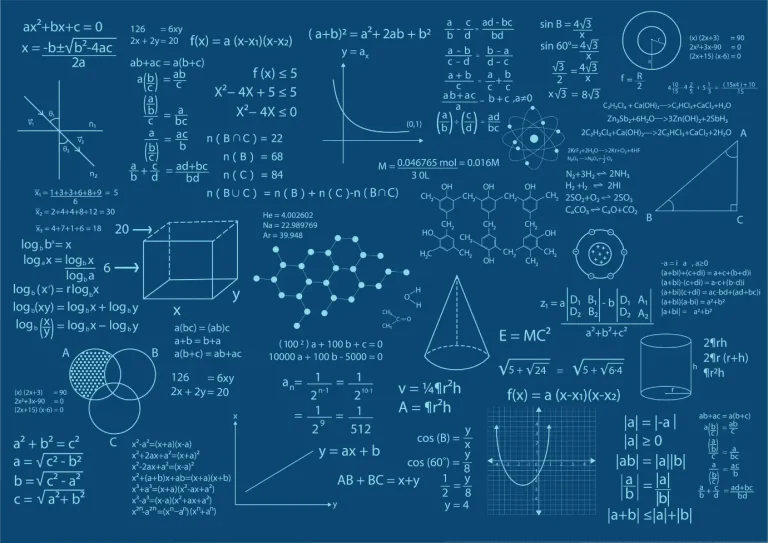Enhance Your Research Skills with Aralia’s Research Scholar Classes
1. What is a Research Paper?
A research paper is a form of academic writing that requires a student to explore and analyze a particular topic in-depth. It involves gathering information from various sources, presenting an argument or thesis, and supporting it with evidence. Research papers are essential for developing critical thinking, building research skills, and preparing for college and beyond.
A primary research paper consists of seven main sections:
- The Abstract, which is a brief summary of the hypothesis, results, and conclusions;
- The Introduction, which provides background information, summarizes prior research, and outlines the study;
- The Methods and Experiments section, detailing the research process, study design, and procedures;
- The Results section, presenting data and statistical outcomes;
- The Discussion section, where the author interprets the results, offers conclusions, and suggests future research;
- The References section, listing all sources used;
- And finally, Tables and Figures, which display the data discussed in the paper.
To read more about each section, please refer to How to Read Scientific Research Papers – High School Edition.
2. What Are the Types of Research Paper?
There are various types of scientific research papers, each with a unique writing style that helps students develop different reading approaches. Primary articles present original research data and conclusions, allowing students to understand how research is conducted and to verify its authenticity. Secondary research documents, such as review articles and systematic reviews, provide overviews of relevant topics and expert perspectives, helping students gain a well-rounded understanding. However, students should critically assess all viewpoints. Special articles include letters to editors, commentaries, and correspondences, offering short communications on topics of interest, often responding to or providing feedback on primary research. These can be useful for students seeking additional insights or clarifications on primary research papers.
Additionally, other common research papers include analytical papers, which break down a topic into its components for deeper understanding; argumentative papers, where the writer presents and supports a particular viewpoint; and experimental papers, which document the process and results of scientific experiments. Each type helps students develop critical reading and writing skills for academic success.
3. How To Do Research
Conducting research in high school is a valuable way to explore your academic interests, develop critical thinking skills, and contribute to the broader body of knowledge. Here’s a step-by-step guide to help you get started:
- Identify Your Research Interest: Begin by exploring subjects that genuinely fascinate you. Whether it’s a specific scientific field, a historical event, or a social issue, choosing a topic that resonates with you will keep you motivated throughout the research process. For more tips on selecting a research focus, check out How to Pursue Research Interest in High School.
- Understand the Research Process: Familiarize yourself with the key steps in conducting research, from developing a research question to collecting and analyzing data. A structured approach will help you stay organized and ensure your research is thorough and methodical. To dive deeper into these steps, refer to the 8 Steps in the Research Process.
- Design Your Study: Once you have a research question, plan how you will investigate it. This might involve designing experiments, conducting surveys, or reviewing literature. Consider what data you need, how you will collect it, and how you will ensure the reliability and validity of your findings. The Guide to Do Scientific Research in High School provides detailed insights into creating a research plan.
- Conduct the Research: Execute your research plan and document your process and observations meticulously.
- Analyze the Results: Once your data is collected, analyze it to see if it supports your hypothesis or answers your research question.
- Present Your Findings: You can present your research in various formats, such as a research paper, a presentation, or even at a science fair or competition. Make sure to communicate your methodology, findings, and conclusions.
- Seek feedback from teachers, mentors, or peers to refine your work.
- Once you feel that your papers are ready, you can choose a research journal to submit your work to for publication. Here are 17 Research Journals for High School Students.
Aralia Students Are 4x More Likely to Publish a Research Paper
4. Research Paper Topics
- Historical Research Topics: Exploring significant events, influential figures, and cultural movements can provide rich material for research papers. For example, students might investigate the causes and effects of World War I, the impact of the Renaissance on modern art, or the role of women in the American Revolution. Check out more historical research topics.
- Scientific Research Topics: Science topics offer opportunities to explore the natural world, human health, and technological advancements. Examples include studying the effects of climate change on biodiversity, analyzing the efficacy of different cancer treatments, or researching the ethical implications of genetic engineering.
- Literary Research Topics: Students might analyze themes, characters, and symbolism in classic or contemporary works. Examples include exploring the representation of women in Shakespeare’s plays, the impact of the Harlem Renaissance on American literature, or the influence of mythology in modern fantasy novels.
- Psychology Research Topics: For students interested in psychology, exploring topics such as the effects of social media on mental health, the psychology of learning and memory, or the impact of childhood trauma on adult behavior can provide unique insights. Discover 10 unique psychology research ideas for high school students.
5. Different Research Paper Examples for High School Students
Below, we will explore examples of high school research papers to help students understand how to structure and present their work effectively. We’ll be drawing from the Journal of Student Research (JSR), a reputable platform that publishes exemplary research conducted by high school students across a wide range of fields.
Neuroscience Research Paper
Neuroscience is the study of the nervous system and brain, focusing on how they influence behavior, cognition, and overall health. Combining insights from biology, psychology, and medicine, it offers an exciting and complex field for students to research, with the goal of developing innovative treatments for neurological and psychiatric conditions.
“Alpha-Synuclein Targeting Monoclonal Antibody Therapy Treatment for Parkinson’s Disease” research focuses on alpha-synuclein, a protein that aggregates and plays a key role in developing Parkinson’s.
Ethics Research Paper
Ethics examines moral principles that govern human behavior and decision-making. For students, researching ethics offers an opportunity to delve into complex moral dilemmas and explore how ethical theories apply to real-world issues.
“Exploring the Interplay Between Religious Music, Emotions, and Ethics in Cultures Worldwide” investigates how religious music affects people’s emotional well-being and ethical values. The study highlights how music influences moral and ethical standards within religious practices, fostering pro-social behavior and ethical decision-making.
Artificial Intelligence Research Paper
Artificial Intelligence (AI) involves creating systems that can perform tasks typically requiring human intelligence, such as learning, reasoning, and problem-solving. Delving into AI can spark interest in developing new solutions and understanding the implications of technology on society.
The Implementation of Artificial Intelligence in Breast Cancer Screening examines the role of AI in enhancing breast cancer detection through mammography. The study reviews various AI models and their effectiveness in diagnosing breast cancer, highlighting the potential of deep learning technologies.
In addition, students can go to 25 research opportunities for high school students to view a comprehensive list of research opportunities available to high school students, offering valuable insights into different fields and helping students find programs that align with their interests.
6. Conduct Research With Aralia
Aralia Education offers a range of research opportunities for high school students, including mentorship programs and research projects. These programs are designed to help students develop their research skills and produce high-quality research papers. Consider participating in these to learn essential skills and prepare yourself to write research papers for competitions, college, and beyond!















